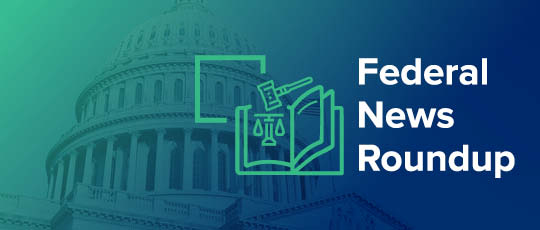That’s especially true for boards of directors, the policy- makers whose oversight function must respond to an array of stakeholders — from investors to employees, customers, interest groups and governments. As never before, there is pressure on boards to address the sustainability of their business strategies and the depth of their commitment to ESG. Are they at a tipping point?
The obvious answer may well be just another question: If not now, when? Nothing illustrates this more than the risks raised by ongoing environmental threats and the brute reality of climate change. Globally — and now that the United Nations has issued a “Code Red” report on the urgency of combatting climate change, underscored by Hurricane Ida’s unprecedented impact on the United States — companies, investors and governments are envisioning a net-zero emissions economy that will impact virtually all sectors and industries.
Despite the practicalities and profound implications of dealing with a pandemic for the better part of two years, organizations can’t avoid the overarching environmental, social and governance (ESG) issues they have faced for decades.
The transformative power of ESG issues generally — and especially climate change — is only gathering momentum, while the volatile pace of investment in solar energy, electric vehicles and other climate-friendly strategies speaks for itself. Recently, a Dutch court mandated that certain companies must make addressing climate-change risks a priority, and thus ordered Royal Dutch Shell plc (Shell) to intensify its efforts to reduce carbon emissions by 2030, boosting Shell’s existing pledge to cut emissions.
Meanwhile, in Texas, a small activist hedge fund called Engine No. 1 won three of Exxon Mobil Corporation’s 12 board seats after a proxy fight, arguing that ExxonMobil had not developed an adequate business strategy around climate change. If anyone needed proof that ESG activism can bring a David-vs.-Goliath power to the table, they don’t ne ed to look much further.
Yet there remains a larger battle to be won in terms of reinforcing an ESG mindset and a proactive ESG culture at companies. The goal is to outweigh reactive policy or “green- washing” strategies to burnish corporate image. For example, polluting companies may have “carbon offset” programs to buy credits toward projects that reduce greenhouse gas emissions or remove carbon from the air, but so far there’s a dearth of standards and data to track the efficacy of those credits. “Culture eats strategy for breakfast,” observed Julio Portalatin, a member of global investment management firm State Street’s board of directors, who also served as a CEO and vice chair with risk and consulting giant Marsh & McLennan. “With culture being difficult to change quickly, it will be some time before ESG becomes a living fabric of an organization, thus it needs a little push from the top.”
---
Little Engine of Change
The urgency of combatting climate change can make for strange bedfellows. Consider how a recently established hedge fund called Engine No. 1, which manages some $250 million in assets and owns just 0.02% of ExxonMobil, a fossil fuel giant worth $250 billion, got three of its nominees elected to the ExxonMobil Board of Directors this year.
As chronicled by Samanth Subramanian in a May 28 article for Quartz, Engine No. 1 “has been calling on ExxonMobil’s shareholders to ‘Reenergize Exxon’ — the name of its campaign, complete with a slick website. The fund’s arguments were strategic rather than ideological: that the company’s returns have been consistently disappointing shareholders over the last 10 years, and that it needed fresh direction in a rapidly decarbonizing world.”
Is Engine No. 1’s unlikely triumph the herald of a new era in ESG activism? As Subramanian reports, one of the first actions taken by the hedge fund’s leadership when it was formed was to establish an “active engagement practice” to focus on activist investing campaigns. The resulting engagement with ExxonMobil is nothing less than proof of concept for shaking up the status quo in an ESG world.
---
Clearly, the push is gaining momentum. A new Harvard Law School Forum report found that diversity, equity and inclusion (DEI) was mentioned as a top-five issue for a majority of CEOs for the first time, and is now the most prevalent ESG metric included in executive compensation plans. The leap to more environ- mental and diversity commitment is baked into the recruitment of a new generation of diverse, climate-conscious employees.
According to Margaret Anadu, global head of sustainability and impact for Goldman Sachs, investors are most focused on being on the right side of “climate transition,” as well as allocating capital in ways that advance racial equity, and on board diversity, which can mean as much or as little as having at least one woman on the board.
“Ninety percent of S&P 500 companies are reporting ESG metrics,” Anadu told CNBC, but noted that only a small number of them report on diversity of the workforce. Anadu suggested that the best investor opportunity for real change is to put capital directly in companies working toward climate transition.
If anything, the upheaval of 2020 has sparked a new degree of global ESG activism. Mandatory ESG reporting is a reality in Europe and elsewhere, with the European Financial Reporting Advisory Group (EFRAG) and the International Financial Reporting Standards (IFRS) determined to advance the work of companies that have pioneered transparency about their ESG efforts.
Demographics matter as well. With more millennials leading companies, the imperative of ESG is less and less arguable.
Meanwhile, such ad hoc examples as BlackRock CEO Larry Fink’s 2021 letter to CEOs declaring that “climate risk is investment risk,” have brought ESG well into the spotlight. To the extent that ESG is becoming part of board of director oversight, with ESG reporting a part of CFOs’ mandate, the tide of true social responsibility is turning toward truly good business practice.
Even so, in the world’s largest economy, that of the United States, most ESG disclosures remain voluntary, but the Securities and Exchange Commission (SEC) may soon propose mandatory climate change or ESG disclosures. Whether made voluntarily in response to investor demands or in response to future SEC requirements, increasing ESG disclosure seems inevitable, if only so ESG can only rise among the concerns of providers of Directors and Officers liability insurance. Companies will need to show board-level understanding and oversight of key ESG risks to D&O underwriters.
“There has been a dramatic shift in ESG interest and attention at the C-suite level,” said Portalatin. “This is mainly due to high-profile events around climate and social justice. Political polarization in the U.S. has also ignited corporate responsibility in the area of ESG. Absent political will and leadership, corporate America has had to step up to fill the void. The social and environmental upheavals of 2020 and 2021 have shaken society to its core, and the corporate world has noticed the seismic shift and is responding.”
Portalatin is hopeful that there’s no turning back the ESG tide. “More and more, you see corporations putting their ESG policies front and center for all stakeholders, from investors to clients, to see,” he said. “Reviews and changes are taking place in the areas of products, services, vendor relationships, carbon emissions, business travel, diversity, equity, inclusion practices, colleague development programs and ethical behavior, to name a few. The serious attention to ESG is now at the forefront.”
To Javier Saade, founding partner of Fenway Summer Ventures and a board member at SoftBank and DocuSign, ESG is “the tip of the spear” in the “rebooting of capitalism” that includes a new stakeholder perspective on the purpose of corporations and their social responsibility.
Saade recently suggested to CNBC that “a regulatory frame- work and a common taxonomy, metrics and data” would help standardize ESG’s role in a new era of responsible governance. “The fact that we’re even discussing it,” he said, “is a prelude to governing.”







